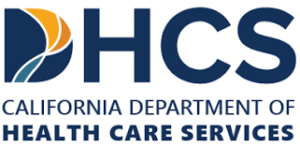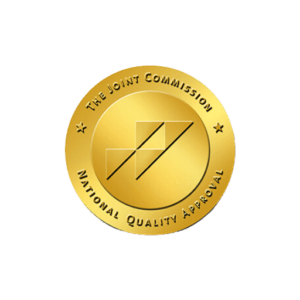Addiction to drugs and alcohol can feel like being trapped in chains, limiting your freedom, and preventing you from living a fulfilling life. However, there is hope for breaking free and reclaiming your life. Detoxification, a crucial step in addiction recovery, plays a vital role in helping individuals overcome their physical and psychological dependence on substances. Let’s explore the significance of breaking free from drug and alcohol addiction, understand the role of detox in the recovery process, and delve into the various aspects of detoxification that can assist you on your journey to a substance-free life.
Understanding Drug and Alcohol Addiction
Before we can fully appreciate the benefits of detox, it is important to understand the nature of drug and alcohol addiction. Addiction is a chronic, relapsing brain disease that affects both the body and mind. It involves the compulsive use of substances despite the negative consequences they may bring. Common substances of abuse include alcohol, opioids, stimulants, and sedatives. Understanding the impact of addiction on individuals helps us grasp the urgency of breaking free from its grip.
The Role of Detox in Addiction Recovery
Detoxification serves as the initial step in addiction recovery, aimed at breaking the physical dependence on drugs and alcohol. Detox involves the process of removing toxins from the body and allowing it to heal from the effects of substance abuse. By clearing the mind and body of substances, detoxification sets the foundation for further treatment by preparing individuals for therapy and other forms of treatment.
Benefits of Detox in Breaking Free from Addiction
Undergoing detox can bring numerous benefits on the path to breaking free from addiction. First and foremost, it allows the body to heal from the damaging effects of substance abuse. Detoxification leads to improved physical health, increased energy levels, and enhanced overall well-being. By breaking the physical dependence on substances, detoxification also reduces cravings and helps manage withdrawal symptoms, increasing the chances of successful recovery. Detox is a vital step towards breaking free from the chains of addiction and reclaiming control over one’s life.
Types of Detox Programs
Detoxification can be carried out through different programs depending on the individual’s needs and the severity of their addiction. Inpatient detoxification involves staying in a supervised medical facility 24/7, providing round-the-clock care and support. This type of program is recommended for individuals with severe addiction or those who require a structured and controlled environment. Outpatient detoxification, on the other hand, allows individuals to receive treatment while living at home and attending regular treatment sessions. This option is suitable for individuals with a less severe addiction or those who have a stable support system at home.
The Detoxification Process
The detoxification process typically involves several key steps. Firstly, an evaluation and assessment are conducted to determine the individual’s specific needs and develop a personalized detox plan. Medical supervision and support are then provided to ensure the individual’s safety and well-being throughout the process. Medication-assisted treatment may also be utilized to help manage withdrawal symptoms and cravings. The detoxification process is a critical phase in breaking free from addiction and requires professional guidance and support.

Managing Withdrawal Symptoms
Withdrawal symptoms can be a significant challenge during the detoxification process. Common withdrawal symptoms may include nausea, tremors, anxiety, and insomnia, among others. It is important to have strategies in place to cope with these symptoms. Relaxation techniques, such as deep breathing exercises or meditation, can help manage anxiety and promote a sense of calm. Engaging in physical exercise, under the guidance of healthcare professionals, can assist in reducing restlessness and promoting overall well-being. Eating meals packed with nutritional value will provide the necessary strength to curb cravings and withdrawals. Seeking emotional support from healthcare professionals or participating in support groups can also provide encouragement and guidance during this challenging phase.
Addressing Underlying Issues
Detoxification is not only about physical detoxification but also about addressing the underlying issues that contribute to addiction. Many individuals with addiction also struggle with co-occurring mental health disorders, such as depression or anxiety. Detox programs aim to identify and treat these underlying issues alongside the physical detox process, providing a holistic approach to recovery. By addressing the root causes of addiction, individuals can work towards sustained recovery and long-term sobriety.
Supportive Therapies in Detox
During detox, various supportive therapies can be incorporated to enhance the recovery process. Individual counseling sessions provide a safe and confidential space to explore personal issues, set goals, and develop coping strategies. Group therapy offers the opportunity to connect with others who have similar experiences and gain support from peers who understand the challenges of addiction and recovery. Family therapy can also be beneficial, as it involves loved ones in the recovery process and fosters understanding and healing within relationships.
Aftercare and Continuing Treatment
After completing detoxification, it is important to transition into further treatment to maintain long-term sobriety. This may involve attending outpatient therapy, participating in support groups, or entering a residential treatment program. Aftercare plans are personalized to meet individual needs and provide ongoing support to prevent relapse and promote sustained recovery. Aftercare is a crucial component of the recovery process and significantly increases the chances of maintaining sobriety in the long run.
Breaking free from drug and alcohol addiction is a transformative journey that starts with detoxification. By understanding the role of detox and the benefits it offers, individuals can take the first step towards a life of freedom and recovery. With the right support and a commitment to change, breaking the chains of addiction is possible, paving the way for a brighter, substance-free future.









